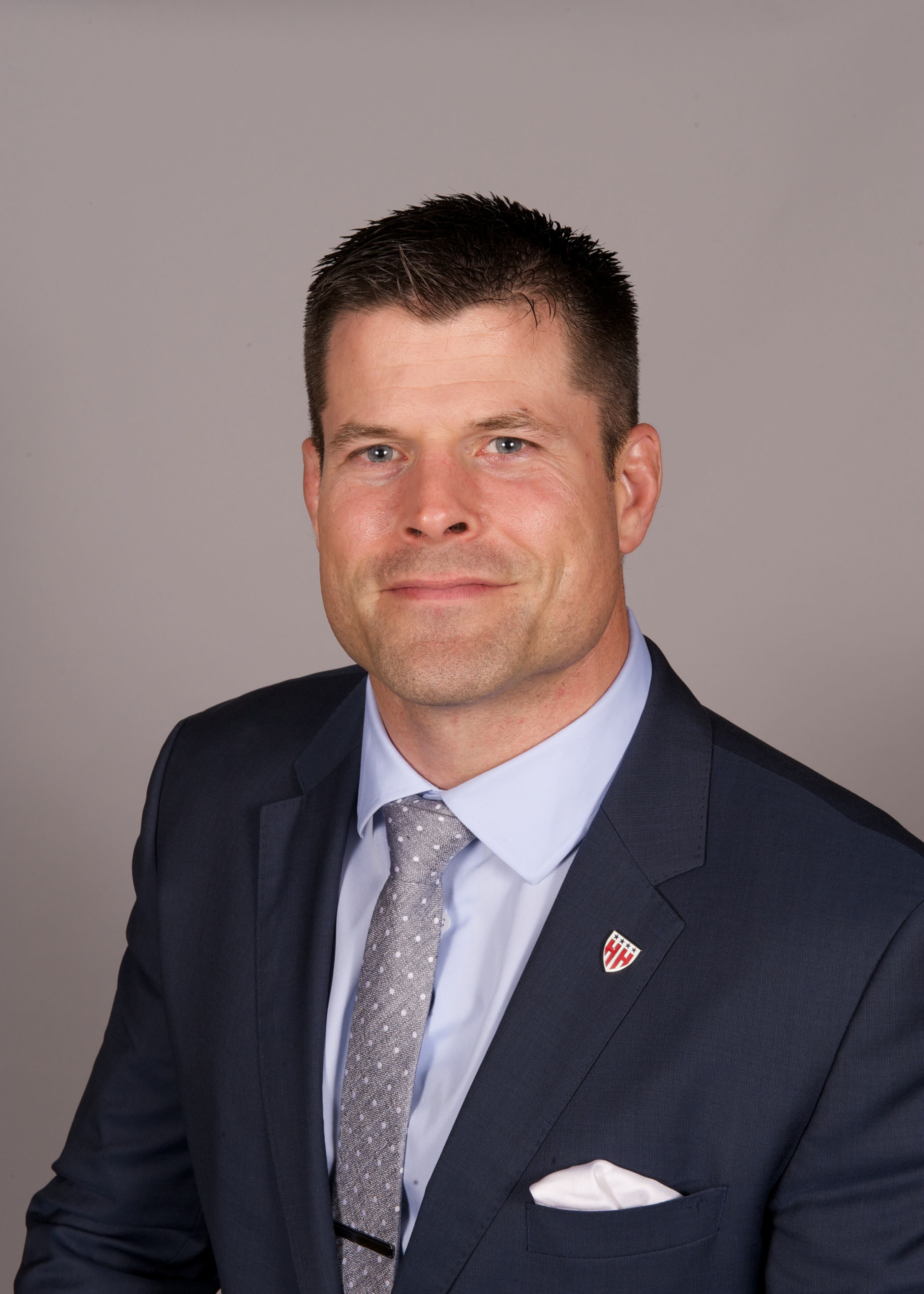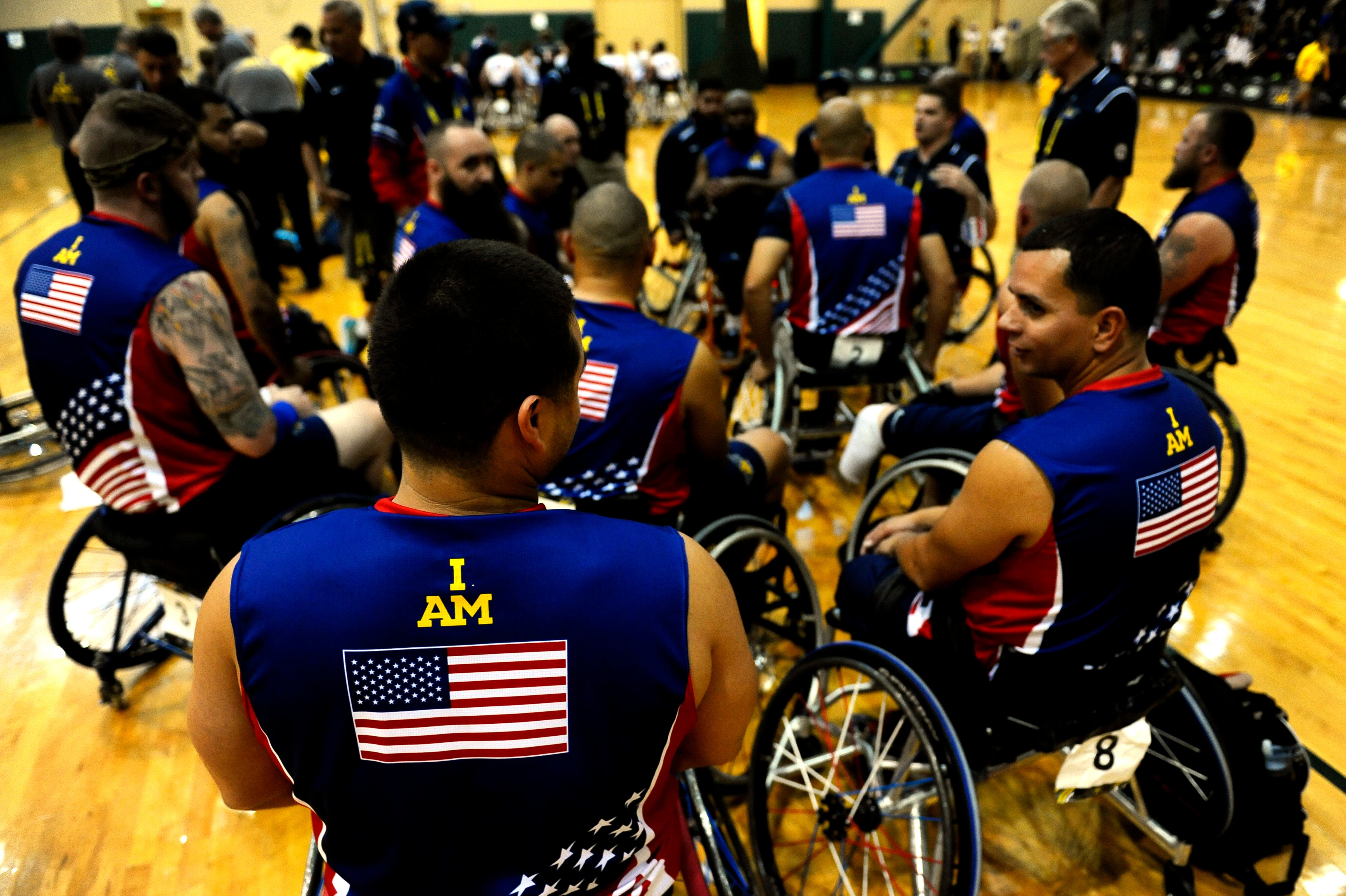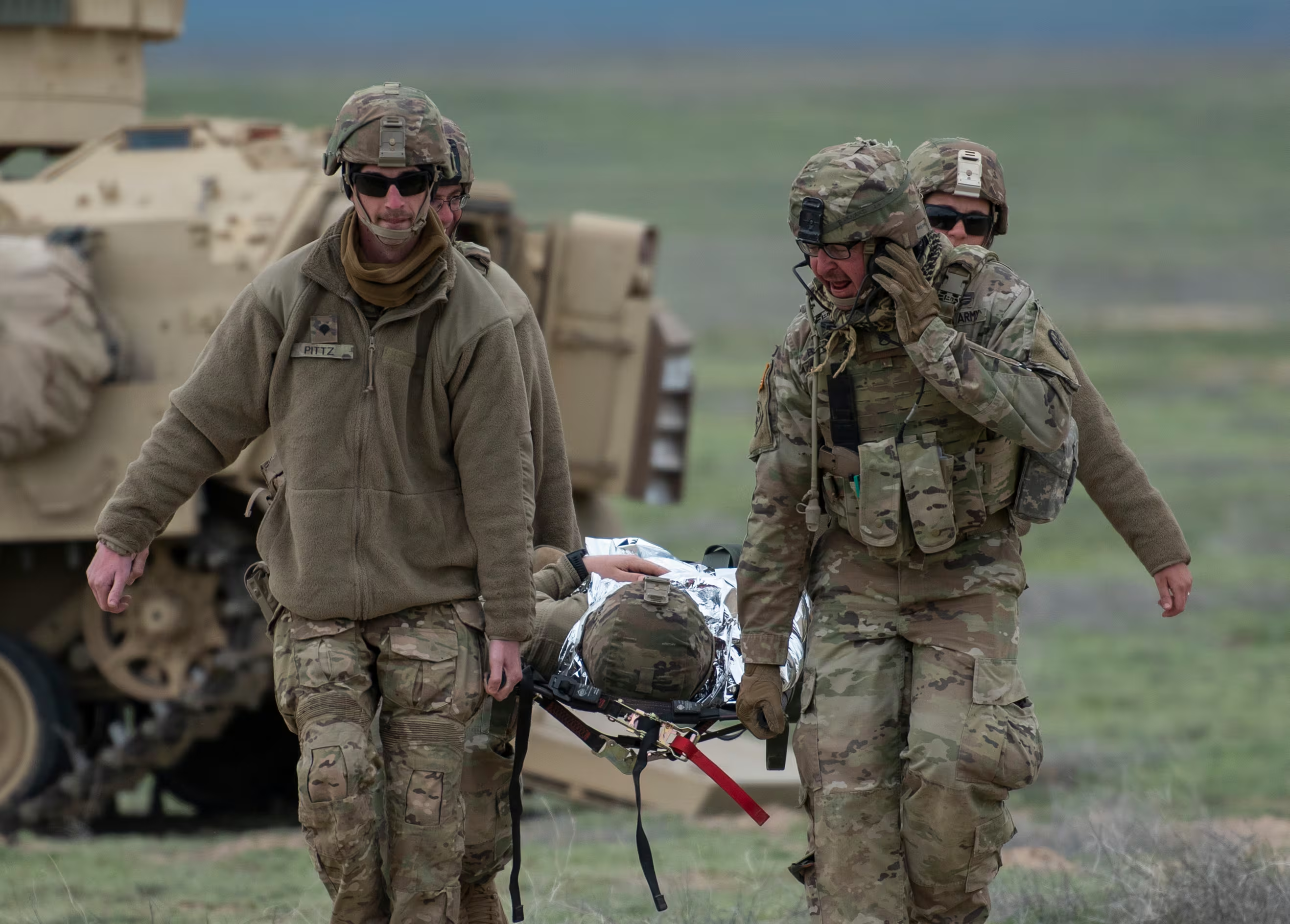The U.S. hosted the second Invictus Games this month, an international athletic competition for wounded and injured veterans. Vets traveled from 14 countries to compete in Orlando against hundreds of others who have known war. The games began in 2014, started by Great Britain's Prince Harry, himself a veteran of the British Armed Forces, who sought to celebrate and showcase the unconquered spirit of service members.
Despite their wounds, or maybe because of them, these former service members entered the fields and courts to demonstrate their strength, skill and physical ability. And, next month, a lot of these competitors will be competing in the Warrior Games, which will take place at the U.S. Military Academy at West Point, New York. The veterans that compete in both Invictus Games and Warrior Games walk in winners, having already accomplished the feat of rehabilitation.

Marc Scheipe is CEO of Sage North America and a distinguished graduate of the U.S. Naval Academy.
Photo Credit: Courtesy of Porter Novelli
This show of fortitude is a compelling metaphor for the transition each man and woman makes as they exit the military and embark on a civilian career — and highlight why more organizations need to look to these hard workers when searching for talent. Here's why:
1. They're fighting to be the best. Individually, the athletes are striving for personal achievement, and collectively they are battling the stigma attached to being a disabled veteran.
Hollywood has crafted a narrative of military personnel that leaves an indelible impression that service members soldiers are de facto killing machines. The stigma attached to this false narrative is that ex-military veterans suffer from post-traumatic stress. Don’t buy into the hype.
In reality, 7 percent to 8 percent of people will experience PTS, and it isn't just a result of war.
Traumatic events are felt and observed by civilians and vets alike. And while the recovery process can be different for everyone, there's nothing to fear except the stigma itself.

Brian Stann is president and CEO of Hire Heroes USA, a decorated Marine, and a nationally recognized analyst for the Ultimate Fighting Championship and former competitor.
Photo Credit: Courtesy of Porter Novelli
2. Veterans’ skills can translate to new situations. And if they can’t translate, vets need to pivot. Hiring managers aren’t well versed in the wide range of skills possessed by service members. They often picture soldiers troops shooting back and forth at each other before they think of veterans as experts in logistics, maintenance, or leadership. As businesses focus on strategies to maximize efficiency and stewardship, they should look to veterans. The military has been doing more with less for hundreds of years, and its personnel have a wealth of experience to offer.
As they transition, veterans need to communicate their value in language that average professionals can understand. Set aside the acronyms, catch phrases and jargon to articulate your skills and how they can apply to a new role. Go a step further and deliver it with confidence. Service members learn to describe successes in terms of "we" and "they" all the time, rarely taking credit for individual accomplishments. Don't lose your sense of dedication and support for the team, but learn to sell yourself in the job interview.
3. You need a good coach and team support. The U.S. military made plans to downsize by 40,000 troops last year. Some great service members have been affected by these cuts. Especially, when leaving the military comes suddenly, because of disability or downsizing, we need to allow service members more time to plan for the transition. While they're serving, we need to offer more opportunities to go after internships. Finally, we need to boost access to services available for new vets. Improved communication and streamlined processes among government agencies would make it easier for members of the armed forces to take advantage of support resources.
When they entered the field of competition, Invictus participants not only demonstrated triumphs of strength and vitality of spirit, they challenged the assumptions about what a veteran can do physically and mentally. Same will go for the Warrior Games. These games showcase what veterans have to offer in terms of character, commitment and fortitude. Who wouldn't see that and want a veteran on their team right now?

Team U.S. wheelchair basketball members huddle after a game at the Orlando Invictus Games 2016.
Photo Credit: Staff Sgt. Carlin Leslie/Air Force
Marc Scheipe is CEO of Sage North America and a distinguished graduate of the U.S. Naval Academy. While in the Navy, he attained the rank of lieutenant commander and held various roles in operations, training, and maintenance. He is also an FA-18 strike/fighter pilot and Six Sigma Black Belt. Brian Stann is president and CEO of Hire Heroes USA, a decorated Marine, and a nationally recognized analyst for the Ultimate Fighting Championship and former competitor.




